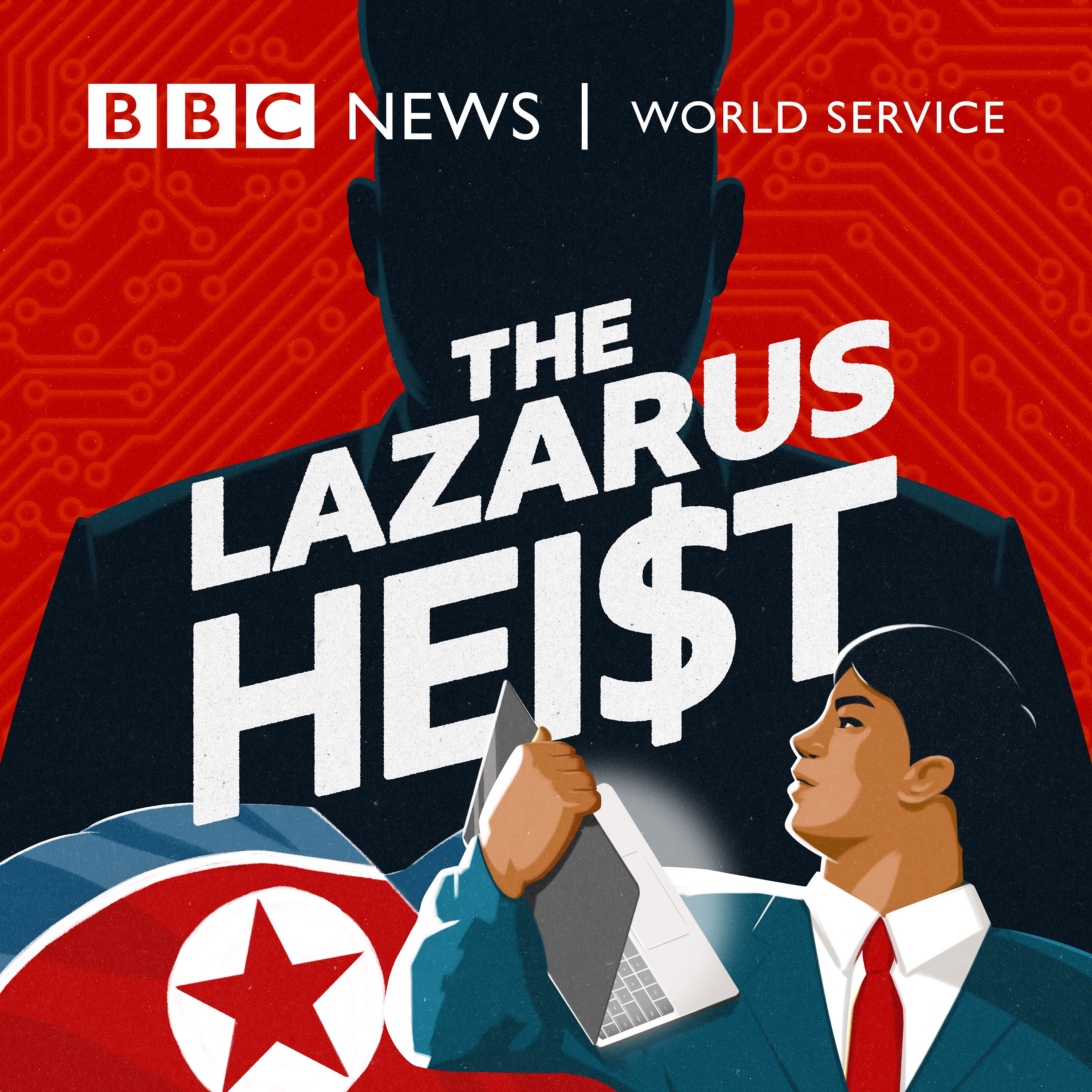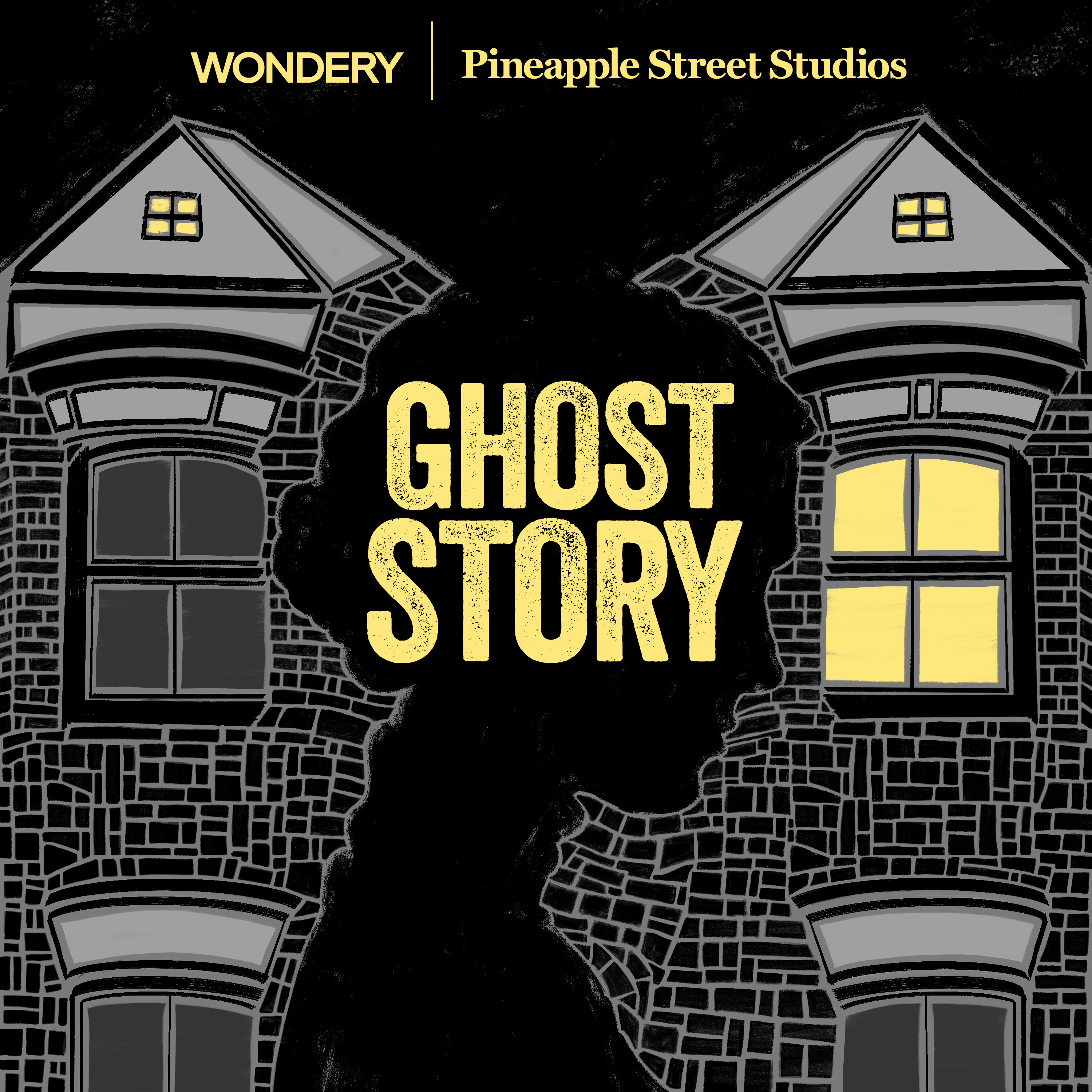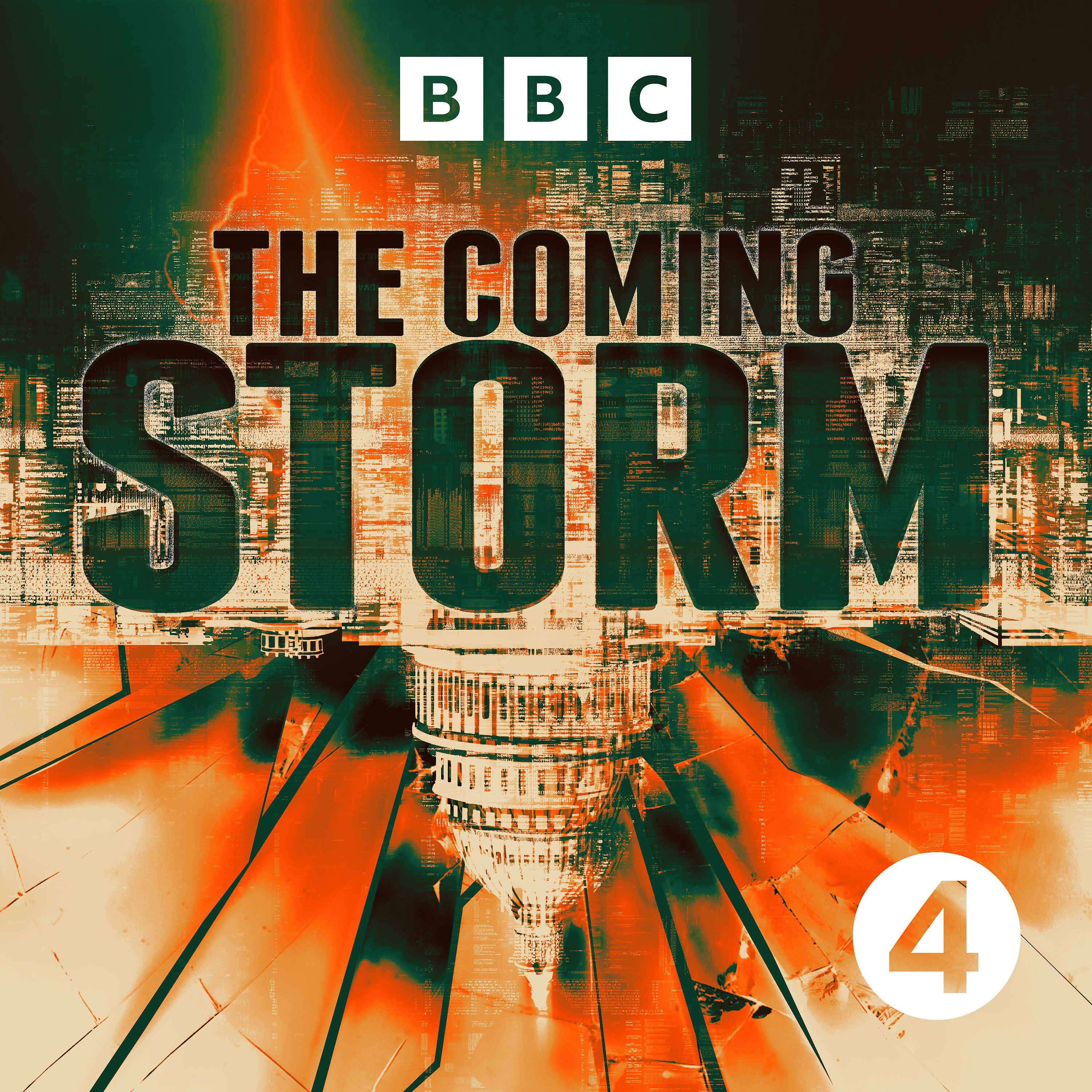
Brian's Run Pod
Welcome to Brian's Run Pod, the podcast where we lace up our running shoes and explore the exhilarating world of running. Whether you're a seasoned marathoner, a casual jogger, or just thinking about taking your first stride, this podcast is your ultimate companion on your running journey.
Join us as we dive deep into the sport of running, covering everything from training tips and race strategies to personal stories and inspiring interviews with runners from all walks of life. Whether you're looking to improve your race times, stay motivated, or simply enjoy the therapeutic rhythm of running, Brian's Run Pod has something for every runner.
Brian's Run Pod
Interview with Running Influencer Carleth Keys Part One
Ever wondered how someone can turn a childhood cardiac condition into a driving force for marathon success? Join us as Carleth Keys, an inspiring marathon runner and influential content creator, opens up about her incredible journey. From balancing a demanding career in news reporting to discovering the pure joy of long-distance running later in life, Carleth's story is one of resilience and passion. She shares the touching moment her son’s curiosity about marathons reignited her own love for running, highlighting how this passion has become a sanctuary amidst the chaos of her fast-paced career and motherhood.
In this episode, Carleth doesn't shy away from the less glamorous aspects of training. She discusses the everyday struggles, like preventing chafing, and the pressure of unrealistic expectations from social media. With honesty and humor, she sheds light on the real experiences of a marathon runner, especially in the challenging times of the COVID-19 pandemic when traditional events were off the table. Carleth's insights and practical advice are a breath of fresh air for both novice and seasoned runners, offering a sincere look at the highs and lows of the running journey. Tune in for valuable tips, heartfelt stories, and a genuine conversation that’s sure to motivate and inspire.
Plus, we have a new feature on the podcast you can now send me a message. Yep you heard it right- Brian's Run Pod has become interactive with the audience. If you look at the top of the Episode description tap on "Send us a Text Message". You can tell me what you think of the episode or alternatively what you would like covered. If your lucky I might even read them out on the podcast.
Instagram
So you're thinking about running, but not sure how to take the first step. My name is Brian Patterson and I'm here to help. Welcome to Brian's Rompod. Well, welcome back to another exciting episode of Brian's RunPod, and I'm your host, brian Patterson, and today I've got an absolutely fantastic guest lined up for you. Joining us is the incredible Carlyth Keyes, a marathon runner, influential running content creator all the way from New York City, and I think you're in Spain at the moment, is that right?
Speaker 2:I'm in Spain. I'm dividing my life between New York and Madrid, mostly because I just had surgery in my right knee. I got better, you know healthcare system here in Spain.
Speaker 1:Yeah. Anyway, with her rich background in news reporting, carleith is now channels her storytelling skills into sharing her passion for long-distance running and her thrilling global adventures on social media. Carleith's engaging and educational constant is not just about clocking in the miles. It's about inspiring you to overcome challenges and achieve those seemingly impossible goals Today, as she'll be sharing her tips and tricks to help you stay healthy healthy and motivated as you train for your marathon. So lace up your running shoes, hit the trail and get ready to be inspired by Carleith Keyes on our episode of Brian's Rumpod.
Speaker 2:That's exciting.
Speaker 1:Anyway, I thought I'd add that in for you. So anyway, how are you today? And really thank you very much. I know we've been planning this for quite a while. I've been bonding bunny with emails, but thank you, how are you today, carly?
Speaker 2:very good, thank you good.
Speaker 1:I just wanted to, as I do with most of my guests, is what was your experience of exercise or running when you were growing up at school?
Speaker 2:well, I always had this flair for running when I was a little kid, always liked speed. But when I was a kid I suffered, you know, like some sort of like a cardiac syndrome.
Speaker 2:You know okay it went away with the years. So I was in the track team, I was very, I was like probably six years old and I actually, you know, fainted in one of my races and the doctor said, you know, she better not, you know, stop running while she grows out of it. So that's what happened. So that was my brief, you know, situation with running when I was a kid, and then it just completely forgot about it altogether until I was, you know, an adult and I started like running recreationally but never to train for a marathon, I mean not even a 5k. That became way later in life, after my forties.
Speaker 1:Oh I see, oh, really, as late as that, oh my gosh. So so what was it? Was there a particular you know event, I mean in your twenties and thirties, did you, did you not consider sort of taking running up seriously?
Speaker 2:Because, I don't know, I was just more focused in my career. I would say, you know, I never took running seriously, so I was into other things. You know, I always liked to keep in shape, but you know I was going to the gym doing other things, you know, to stay healthy, and but it's true that every time I went for a run to run around Central Park, it was like to me it was a secret. You know, a moment to disconnect, disconnect. Yeah. So I really like that about running. Whenever I had a, you know, like I was worried about something or I had to think about something, to make a decision on something, so I always went out. You know, I don't know if you ever been to new york city or central park, yeah, uh, the jack lingonacci's terroir, that is right in the middle of the park I used to do that?
Speaker 2:I would say probably not more than two miles and that that's the only one thing I would do. You know, just go around the lake and then just went back home and that's it. So I never really run long distances like I do now.
Speaker 1:Because you had quite a high profile in media, is that right at the time? So yeah, so obviously you didn't really have a lot of free time to be doing sort of training for marathons and that kind of thing.
Speaker 2:I think I lost you.
Speaker 1:Oh yeah, so yeah, no, what I meant was is that you, you didn't have a kind of like a lot of free time for doing sort of like marathons and at the time, oh no, no no, I never.
Speaker 2:And coming from New York, you know, it's just like I, like I was working in news and every year I knew that, you know, around November it was this big block party going on in the city is is a new city marathon, yeah, and the city will just stop completely just for that race. And I knew that and it was like, oh, how fun would be, you know to, to run that race one day. But you know, it was to me back then it seemed like a very untenable, you know, like very unreachable for me. You know I was so busy like I could never fathom the idea of, you know, investing a lot of time, dedication hours to training yeah so yes that.
Speaker 1:So when did that inflection point come? And well, was there something that you thought?
Speaker 2:yeah, after motherhood. Ah right, it was my four year old back in the day, five years ago, and so he saw that. He saw a documentary on the New York City Marathon and he saw the sea of people crossing the Verrazano Bridge and he asked me what is that? I'm like, and I told him this is the New York City Marathon, the biggest party in town and it's amazing, like 50,000 people running together. He's like but you like running? I'm like yes, have you ever run the New York City Marathon? I'm like no, why? Well, because the same thing, you know, it requires a lot of time, dedication, and mommy doesn't have the time. He's like yes, you do.
Speaker 2:And he was right, because back then I was going through some you know ups and downs in my career wise, you know talking about that because I became a mom. I actually left my career behind when I decided to have my first child and I never looked back. So, even though I tried to do many other you know ventures, you know, on my own, but never really succeeded I was a full-time mom. So I guess my kid back then he saw that, as I had all this free time for me to train under something else, I'm like are you throwing me out of the house or what? What? Yes, let's do this. Let's, let's train for a freaking marathon, that's how it goes and I never look.
Speaker 2:Never looked back ever since.
Speaker 1:All right, okay, so on those first tentative steps for, you know, going into the marathon, I mean, did you get any particular advice or did you sort of like, well, you know, I'm going to sort of go with the journey my way.
Speaker 2:What do you mean?
Speaker 1:So basically was was it, did you look for a coach or did you get any back then?
Speaker 2:yeah, what was what was and and it's funny because I was just listening to your introduction it's like you want to. You want to start running. You don't know what, where to start. That was me. That was me, okay. So I want to train for a marathon. I know I need to run, so I guess I run. So I just went to my local running club just run with them, but I didn't follow any you know particular plan. I just didn't know what I was doing. I just did whatever they were doing. I couldn't understand any of their running lingo, like do four by four hundreds or all this, or tempo running or fart leg.
Speaker 2:I just follow whatever they were doing, I just go behind them and, you know, try to mimic whatever they were doing. I didn't have watch, I didn't have not even the proper shoes. I just went there with whatever had on and with a good vibes and that's it. And it was easy for me to get injured so, but I didn't care. I couldn't really understand my own body. You know, like now you need to rest or now you need to. You know foam roll or you need to eat more protein, Everything that I know now.
Speaker 2:I had completely, absolutely no idea back then, so I didn't follow a proper protocol for training my first marathon. And my coach in the run club, like months later, he asked us like so do you have any goals? I'm like, yes, I'm running the New York City Marathon. He's like, oh, are you doing long runs on weekends? Because I only see you doing all this. You know the speed work. I'm like am I supposed to do that? I don't know what. He's like oh, oh, my god, you really need. It's 26 miles. Yeah, it's like now you have to do 10ks and then you have to. He can explain to spell it out, but he wasn't really my coach.
Speaker 2:Um, so on my own, I just kind of like I just went for it until, well, my first new york city marathon was a charity race and when I in, they started doing like train group trainings once a week, the charity organization I was raising funds for. So you know, I cannot like put myself together with them the final weeks of training. So you know, so that that's that, that's about it. And I had a lot of nice mentors there in. You know it, it's Team for Kids, the charity organisation that was raising funds. So they have mentors and they kind of like guided me very last minute, like on how to you know like hydrate, like I didn't know I was supposed to be taking gels or being fuelling during the race. I mean all these little details that they're so overwhelming, really, when you start running.
Speaker 1:But did that help, you like? Because you were learning bits and pieces every time. It's like me with this podcasting thing I'm learning new things all the time, you know, and and in a way I like the fact that you know sometimes I'm failing at it or on or whatever, but do you think that kind of spurred you on? You know, it was like you weren't, you weren't, let's say, you didn't feel that oh no, I'm gonna give it up, or you know, at any stage, oh, not at all.
Speaker 2:I guess I have this personality that I don't. I don't consider myself a quitter, like right ever say like okay, so this is not for me, maybe, so I'm gonna just do something else. No, I'm not like that. Whatever I start, I finish there. If it goes good or bad, I mean it doesn't matter the outcome, it's okay. So this is not for me, maybe, so I'm going to just do something else. No, I'm not like that. Whatever I start, I finish. If it goes good or bad, I mean it doesn't matter the outcome. It's like I just put my heart and mind into this and let's do this, let's see what. You know what happens. So, yeah, like quitting was never an option for me. Maybe the night before the race, yes, I was like, oh my god, I don't know, I bet I mean you have run marathons right no, I've never run a marathon, I've, but I mean nothing.
Speaker 2:The most 10 miles, 10 miles, 10 miles, 10 miles, yeah well, once you get into the groove of running half marathons and marathons, that's when you get the. You know the imposter syndrome okay, yeah I'm not made for this. This is beyond my capabilities. You get that you know the night before.
Speaker 2:Yeah and I mean, many people actually wake up there the day of the race thinking I'm not showing up. So there's always that chance that you will. After months and months of training, you don't show up to the race because you feel that you're never going to make it. So that was me my first marathon. So so, yeah, I mean there was always a possibility that I'm going to fail the test, that I probably got a DNF or do not finish.
Speaker 2:but then soon I realized that you know the race is just like. I guess the toughest part of running a marathon is just the training part. Once you're in the race, everything goes so fast and so smooth and you have so much fun because you get fed up with all this energy around you, all the other runners trying to get to the same finish line that you're chasing after too. So it just kind of flows together and that's when you get hooked, that's when you get to the's, when you put the finish line and also you get the yeah, and also the people are giving you the energy as well.
Speaker 2:At the same time, yes, especially being new york city such a great crowd, you know you just get the feeling that everybody's rooting for you, so it's like you don't want to fail them. You know you want to. You want to really go all those 26 miles and cross the finish line like a champion and get your medal.
Speaker 1:I see that you've done London recently. You did London this year. Is that right? And how was that for you? I mean, how many times have you done London?
Speaker 2:No, that was my first time.
Speaker 1:That was the first time.
Speaker 2:I was very impressed.
Speaker 1:Oh right.
Speaker 2:I didn't expect it to be so much fun, because New York City is such a high standard for me. After New York City, everything else is just like oh, come on, this is not New York City, not New York City. And suddenly I just run London and it was like I really like this.
Speaker 1:Oh right.
Speaker 2:This city, this crowd. I mean everything was perfect, everything was amazing in london yeah, yeah.
Speaker 1:So oh good, I'm glad you enjoyed it. I'm glad that you, we gave you a good time.
Speaker 2:So oh, yes, yes, definitely so. Station, the people are so nice and the crowds, I mean from start to finish. I mean there's no one dull moment in London.
Speaker 1:So, going from there, it's obviously you've got the bug and you know. You think, yeah, I could do this again. Going on to the kind of the social media side of it, what made you think, well, maybe I could help other people or chart my success, Exactly because of that first experience that I didn't know what I was doing I could help other people or chart my success in, Exactly Because of that first experience that I didn't know what I was doing and back then I couldn't.
Speaker 2:Yes, I started following people and maybe I'm not the only one saying this, but that's how it started because I started following runners, like trying to do whatever they were doing, but they were too perfect. You know, there were like like incredible times running marathons under three hours, all these perfect looking long legs, you know, just like yeah.
Speaker 2:I'm supposed to do this and I guess somehow I felt like I was pressured to do whatever they were doing, you know, to live up to their standards and and and it's. I did it all wrong, completely, completely wrong. So it's just like because I couldn't find anybody like me, you know, to tell me things like so basic, like, for example, you're going to chaff, like if you don't put you know ointment, petroleum jelly or something that will help you with the friction of clothing and skin, you're going to suffer. I mean that's just a serious thing. I mean I do funny videos about it and people laugh, but it's.
Speaker 2:I mean I heard I learned the hard way, but when I went in the shower that was my first experience it was like people need to know about this. So I'm a big advocate of you know petroleum jelly and you know petroleum jelly and you know basic stuff. Like you need to go to the bathroom many times before going on your race because you're gonna have a huge problem. Yeah, you know, just like basic human things. You know that people need to know when they, when they're training for a marathon or you know commit or they're committed to the run on distances, like that.
Speaker 1:Or did you feel like, kind of like the people that you were training with, you know, there was kind of like they, they needed someone, not just this kind of so-called perfect athlete, as it were, that you could relate to them more.
Speaker 2:No, I just wanted somebody to spill the beans for me. You know, it's just like that, like nobody talks about this stuff. You just see them doing all here. Repeat this is how you get faster. Do this four by four hundreds and then go in the zone and then you go to Coke lunch and you know I'm like yeah, but but no one was saying all this other stuff about the petroleum jelly.
Speaker 2:Nobody talks about the petroleum jelly Nobody talks about you know all the undergarments that you need so you don't suffer. It's just like those little details that nobody told me about. It's just and I'm learning as I go and I know people need to know. So yeah everything.
Speaker 2:Like you said, when you see social media posts it's all about that Like how to be the fastest you can be, how to get the best. You know it's just like all these how-tos that don't really tell you the whole picture, the whole story about being a runner Because being a runner is not glamorous at all it's not what you see on social media, that everybody's running happy, like into the sunset, and you know you're like running at five, three, I don't know what, it's just metric or imperial, but you know they seem like they don't suffer. But yeah, there's a lot of suffering into it you know, yeah, it's like everything is aching.
Speaker 2:It's just like you're out of breath and and you're hungry. I mean, it's just like nobody talks about that I'm not.
Speaker 1:I know some people say I don't think it's the same for me, I don't have to say for you, but it's like the first 10 minutes are like hell. Before you kind of get that kind of rhythm and you know your breathing comes, yeah the first 15 minutes oh, is it okay, yeah, everybody's different, but for me it's always a fit.
Speaker 2:I mean, if I survive the first 15, it's just like okay, well, I'm I'm good, I'm good, so yeah, so yeah, it's just getting into the rhythm, especially when, when training for races is very humbling.
Speaker 1:Yeah. And so when you so did, you realize people were saying like, yeah, she talks for me, you know, and, and suddenly you're kind of that's how I started the following.
Speaker 2:I never got into this thinking, oh, I'm going to be an influencer Never. It's just like all of a sudden people started following me. I had an account where I had like, because I always do.
Speaker 2:I always like to do videography, but like in a very personal space, like I was doing beautiful videos of, you know, New York City living like a salsa street dancing or a tango dancing in the river or something like that. They were very cinematic. That was my, that's what my account, my account, was all about before and but when I started posting running videos, that's when COVID happened. So all those events, all those beautiful events happening in New York City, they were canceled. So I just, you know, just to kind of feed the need of doing something with my cameras, it was just like I was filming myself and telling my story of how I started running and how I'm training, and that's when people started to follow.















